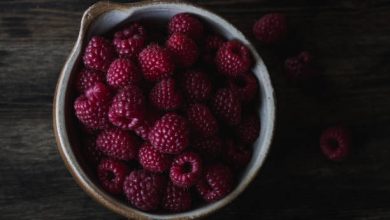Does It Matter What You Eat or Drink Before Bed?


When it comes to a good night’s sleep, what you eat or drink before bed can play a significant role in determining the quality of your sleep. While some experts used to believe that eating before bed was a bad idea, recent studies suggest that eating a small portion of nutrient-dense foods at night can actually have positive effects on the body.
Eating and sleeping are two essential activities for health and well-being. Food gives people the energy they need for daily life, while sleep helps their bodies rest and recover. Knowing how the body handles food at night can help you make informed choices about bedtime snacking.
Benefits of Eating Before Bed
Food and sleep have a complex relationship. Our sleep quality can affect what we choose to eat. On the other hand, what we eat, and when we eat, can affect our sleep. Eating at night, therefore, can have varied effects on how fast we fall asleep, the quality of our sleep, and how we feel in the morning.
Although experts do not recommend large meals before bedtime, a light snack can have several benefits. A snack before sleep may be necessary to prevent low blood sugar. Certain snacks before bedtime can provide sleep benefits such as falling asleep faster or staying asleep longer.
1. Stabilizing Blood Sugar Levels
If you have diabetes, keeping your blood sugar levels appropriately balanced is important. Certain medications that manage diabetes can lower blood sugar levels too much. Low blood sugar at night can give you nightmares or make you sweat excessively, disrupting your sleep. You may also wake up feeling irritable, confused, or tired.
To avoid these problems, eating a carbohydrate-based snack can help raise blood sugar to the correct level. In other cases, healthcare providers may suggest that people with type 2 diabetes have a snack at night to avoid waking up with blood sugar levels that are too high.
RELATED: Sweet Dreams: Bedtime Snacks That Won’t Spike Your Blood Sugar
2. Falling Asleep Faster
Some foods contain elements that may you fall asleep faster. Experts hypothesize that consuming foods containing high amounts of tryptophan, serotonin, or melatonin can shorten the time it takes to fall asleep and improve overall sleep quality.
Tryptophan, serotonin, and melatonin each play a role in the body related to sleep. Every diet requires foods with the amino acid tryptophan, because the body cannot produce tryptophan on its own. The body then turns tryptophan into serotonin and melatonin. Melatonin signals to the body that it is time to sleep, while serotonin regulates sleep, hunger, and emotions.
3. Satisfying Hunger
Hunger is a natural need for food. Common signals of hunger are the feeling of an empty stomach or hunger pangs. Light-headedness and fatigue can also be signs of hunger. Experts caution against mistaking other feelings for hunger, such as boredom, tiredness, or anxiety. These feelings are not the same as hunger and may be addressed in ways other than eating.
If you get hungry in the evening after dinner, a light snack may be appropriate. Snacks that offer a lot of nutrients but are also low in




